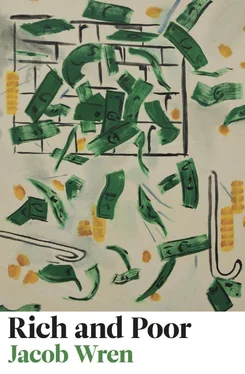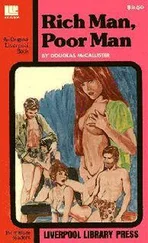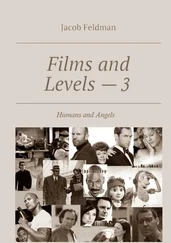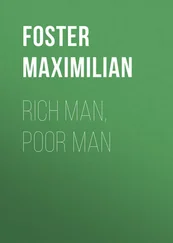The next day there is someone to pick me up at the hotel and drive me to the meeting. However, as we drive it takes me more than a few minutes to understand what he’s explaining to me. That he’s the head of the division, and decided to pick me up himself because every single person working for him is currently on strike. There was also a slight fear that if he entrusted it to an employee I might be kidnapped, since the strikers were currently activating every last scrap of leverage they could lay their hands on. Finally, it was his pleasure to meet me in person and be my driver for the day. I realize this situation is the reason I was handed such a lengthy brief on labour unrest in preparation for the trip. I clearly should have read everything more carefully, but my general tendency for these meetings is to improvise, to skim the brief and then see what happens. Since they are more or less only fact-finding missions, and nothing concrete has to be negotiated or decided, I see no harm heading in guerrilla-style and then making the best of whatever happens next. As we drive he explains to me that now, as the strike is heading into its seventh month, they have finally run out of back inventory and will soon be forced to settle. He looks to me almost for sympathy, as he insists that they absolutely held out for as long as they could, going on to explain that in the negotiations to come they will make as few concessions as possible.
We pull up in front of the largest, densest picket line I have seen in my life. There must be thousands of them. We can’t actually go into the offices, he continues to explain, but he simply wanted to make sure I saw this for myself. We both stare out the front window of the car at the waves and waves of people surrounding the building. We sit there for a while before they all start to chant in perfect unison. My companion explains that they’re chanting that if they all stand together nothing can stop them, nothing can stop them and they will win. We listen for a while and then go for lunch.
Over lunch there is so much he wants to explain, as if I had the power to grant him capitalist absolution, and if he explains it all in enough detail I will eventually do so. He explains that of the thousands of people we just saw picketing, only a fraction actually work for his division. Somehow the strike has generalized, become a more general protest against business and against conventional society. By showing their solidarity with the workers, people from all walks of life can have the feeling they’ve become part of a fight they can actually win. He then corrects himself, he had just said all walks of life, and perhaps some of them had been in all walks of life before they lost their jobs, but now they were mostly unemployed. His worst fear at the moment is that the protesters will find a way to occupy the building, get rid of management, and run the division as a workers co-op. There is much talk these days of taking over businesses in this way and therefore, somehow, changing capitalism from within. Like some had already managed to do in Argentina. He is sure there are many on the picket line, maybe thousands, who would love to see his business used as a test case, the first domino to topple so to speak. A few years ago the government would have simply rolled in and arrested everyone, but there’s a new government now, elected on a platform of change, and they don’t like the optics of using their first year in office to break the longest and most popular strike in recent history. They want us to negotiate, he says, and soon we’ll have no choice.
What he couldn’t understand, what he was still trying to work out, is how the workers managed to win over such a massive display of popular support, to win over the masses and make him into the villain. Because there was no question in his mind that, in the current popular imagination he was a worse villain, more evil, than any screenwriter was capable of dreaming up. I wondered if this was pure paranoia on his part or if there was any truth to the public relations nightmare he was describing at such great length. He wondered if the best thing to do was to resign, let someone else engage in the long, painful negotiation that would hopefully end the strike without ending the profitability of the division. Maybe there was someone that wanted his job who at the same time also had the ability to sell him- or herself — for a moment I thought he had said ‘scam’ him- or herself — as a friend to the workers. His own reputation, in this sense, was now so poor he feared it would only be a liability. He had always, in his long and successful career, done everything he could to maximize value for his shareholders, and he didn’t see how this simple, practical fact could now be held up as an evil greater than biblical sin. But in the court of popular opinion, that was where things stood. He then said he had two questions for me: 1) did I come here to close down the division and 2) if not, or even if this was the case, what did I think of the situation and what did I think he should do?
I consider the matter for a long time before answering, perhaps too long, because when I finally look at him, really look at him, he seems anxious to the point of terror. I realize he thinks I’m the wrecking crew, here to destroy him and his career. But I’m not the wrecking crew, and when I finally do speak I try to explain some thoughts I’d had on the plane, about the zeitgeist, how this particular strike should not be viewed in isolation, but as one sharp yet slight aspect of a much larger cultural moment. I can tell this isn’t what he wants to hear. He sees himself only as the victim, a casualty of this particular zeitgeist, does not see any opportunity in it. I try explaining that every setback must also be viewed as potential, that he must put these questions in perspective, but basically he isn’t listening, or all he hears is the fact that I don’t have a magic bullet up my sleeve, am not actually here to help or rescue him. He offers to drive me back to my hotel. If I want, he says, we can go watch the strike for a while longer. He says he has watched it every day from a safe distance, sitting in his car. He watches every day, wondering what exactly it is they want, what exactly he should do to resolve the situation without losing face. He’s getting more and more worried about himself, about how each day he drives to his former workplace and spends an hour, or several hours, watching the crowd surround the building. He’s worried he’s starting to find it beautiful.
2.
At the hospital they bandage up my hand. Since moving to the field I had kept what was left of my life savings strapped to my thigh. I use about a quarter of this money to pay the hospital. Of course I haven’t been the only one beaten. Over the next days I learn they’ve tracked down as many workers as they could find. The attacks are always the same: they find workers out alone, far away from the field, and beat us within an inch of our life. It is obvious why they don’t want to come for us in the field, where they would have to face thousands of angry workers all at the same time. At the next meeting we decide to only travel in packs, don’t go anywhere in a group of less than ten. We’re starting to put together a strategy. Different subcontractors run different buses and different crops; they don’t all work together, at least not yet, so it will be hard for them to present a united front. We are sure there must be some way we can use this chaos, this lack of coordination, to our advantage.
There was a particular moment I will always remember from that last decisive meeting before the strike. The mentor had brought a giant chalkboard out into the field. Where she got such a chalkboard, or why she thought it was necessary, are both aspects of this moment I am unable to unravel, but it took four of us to carry it from the roof of her car out towards the bonfire. On the chalkboard she had made lists of all the tasks that needed to be done, and as she read these tasks, people called out their names to volunteer. Very quickly the chalkboard filled with names and each name called out seemed to me like one step closer to the oncoming storm. I had unstrapped my life savings from my thigh and decided to spend the rest of it on food and water for the strike. If the strike was successful I would find other ways to survive, and if it failed I would be dead, in jail or expelled from the country. In at least two of these scenarios I would have little need for cash.
Читать дальше












